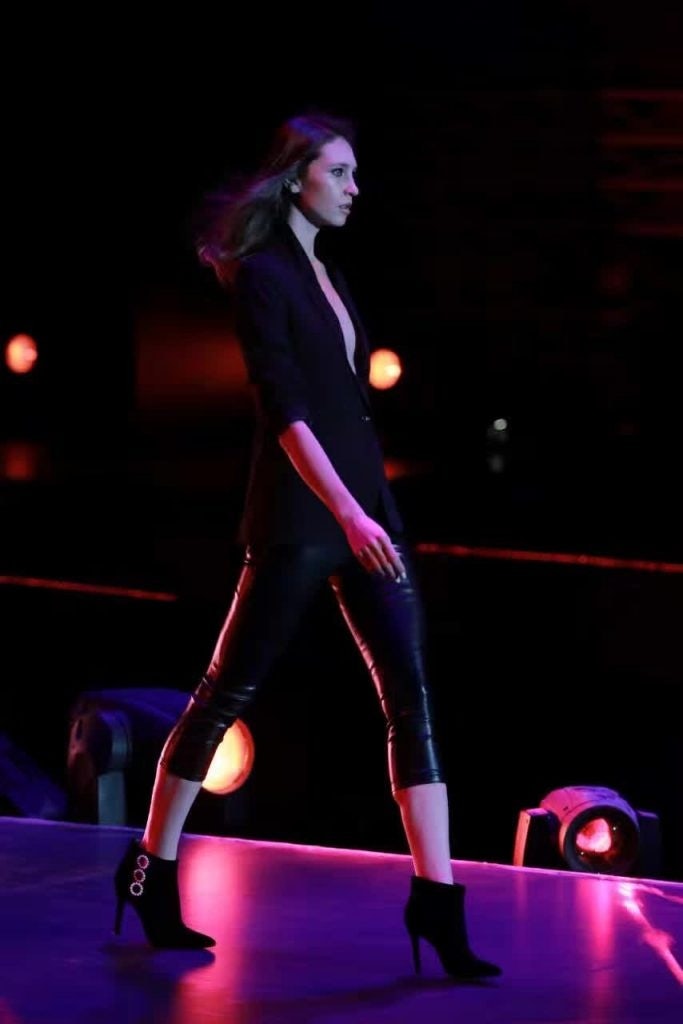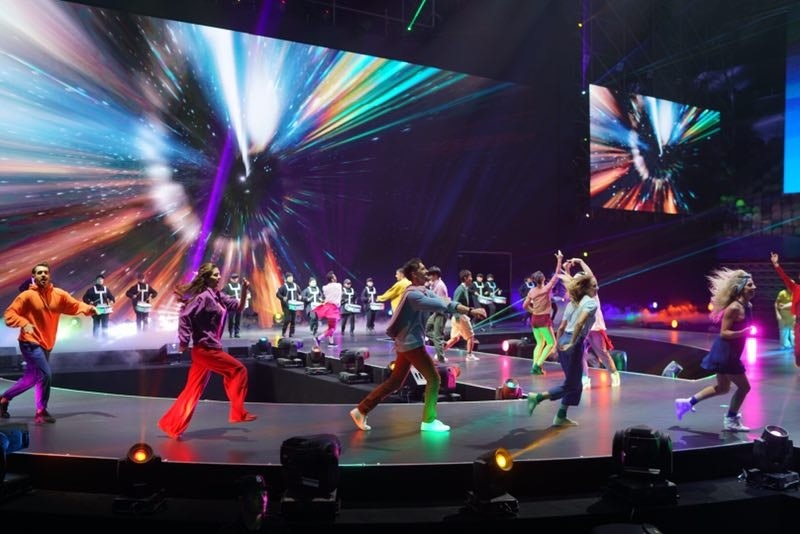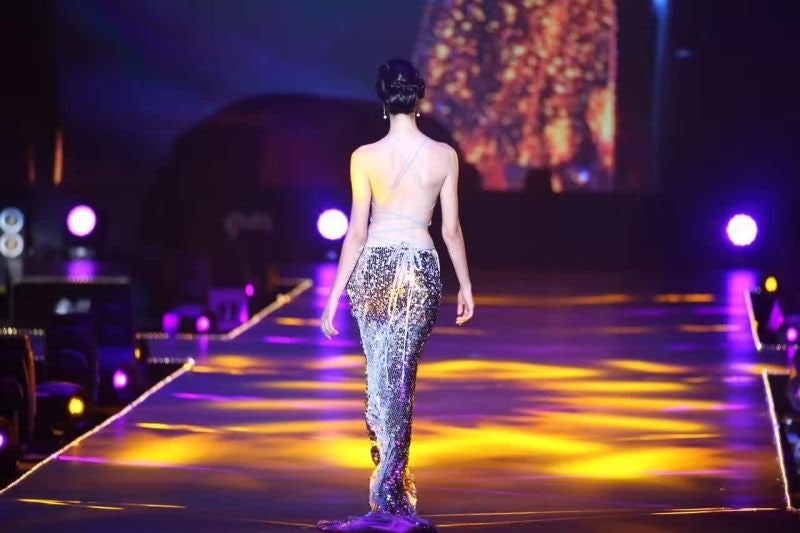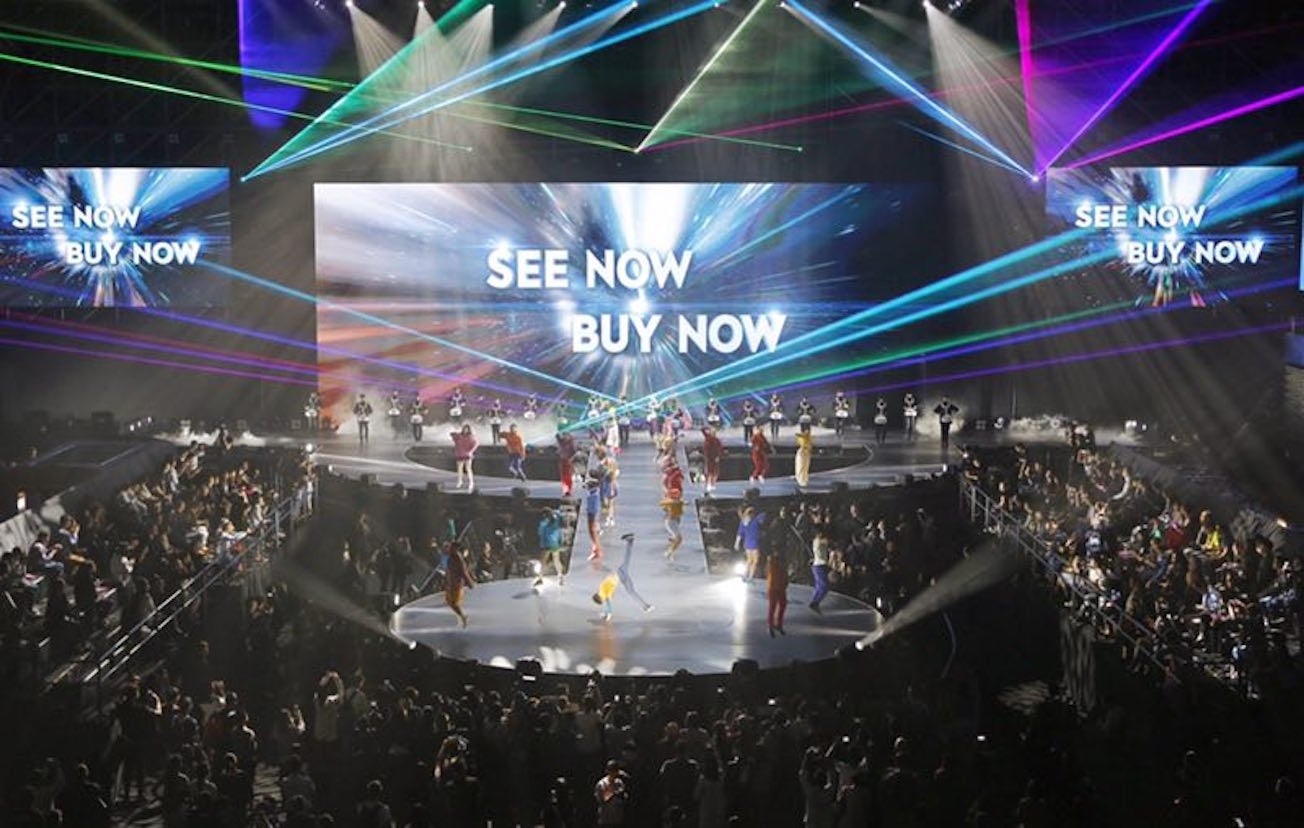Yesterday, Alibaba’s Tmall hosted an eight-hour marathon fashion show streamed live online, launching new collections for some of its 100,000 listed brands in hopes of bringing in more international luxury clients.
In line with the event, China Business Network (CBN) released a report of global shopping trends, which have fueled the direction of Tmall’s evolving business strategy. Tmall accredits its monopoly of the online Chinese shopping market to the ease of the platform and the ability to “see now, buy now,” a concept at the forefront of yesterday’s epic fashion show ahead of the November 11 Singles’ Day shopping festival, also simply called “11.11.” The items launched at the fashion show will be on sale through until the end of the Singles’ Day event. The show was live-streamed on Tmall, Youku, and Mobile Taobao, enabling tens of millions of consumers to click on items on show and purchase immediately. The live-stream included appearances by well-known industry insiders, with fashion advice directing the viewer to more products.

This immediate interaction between brands, fashion insiders, and the consumer is one that drives the growth of live-streaming fashion shows, in a way which enables the everyday consumer access to a catwalk show and as such to feel a bigger part of the fashion process. The Tmall organizers describe this as “shortening the fashion consumption chain,” a method that has proven its worth in the popularity of flash sales and brand launches. The 11.11 shopping festival last year made a record 920 million RMB in a 24-hour period, and Tmall’s first “see now, buy now” fashion show with Mei.com proved successful, taking place in March of this year.
The organizers of yesterday’s Tmall collection launch were not afraid of building high expectations, dubbing the extravaganza the “fifth world fashion week,” despite the noticeable absence of some of the world’s major luxury brands. Last month, American designer Coach chose to leave the online platform, while continuing to sell items on WeChat alongside a growing number of fashion giants such as Dior. As of yet, Tmall has been unable to secure deals with many big-name foreign brands.

Burberry is constantly promoted as its biggest international luxury client, and its success is perhaps a marker for what can be achieved by online sales in China, if done right. Yesterday, at the live-streamed eight-hour fashion show, Burberry exclusively unveiled a new advertisement, alongside a whole host of brands showing new fashion lines, including Ted Baker and Zara.
The CBN report makes it clear that Tmall is trying to shift to more high-end brands, with the findings of the report aimed at making these brands ultimately less wary of joining the platform. Highlights include the finding that over the past year, 80 percent of mainland China’s online fashion consumption has been through the Tmall platform, where brands are increasingly launching new product lines between 15-30 days ahead of offline release. According to Tmall, the platform is now home to 80 percent “Tier 1” brands such as New Balance, Calvin Klein, Topshop, and Topman, with the aim of pushing this figure closer to 90 percent within the next year.

Tmall’s marathon fashion show was entirely focused on luxury brands and promoting involvement with them, however the question remains over whether luxury brands want to commit to this mass-market sales strategy. With such a wide range of brands now represented on the platform, critics argue that Tmall may not be able to address the primary values and ambition of luxury retailers that maintain their high-end status through a degree of exclusivity and personalized “VIP” service.
Tmall also continues to face criticism for its response to third-party sellers of counterfeit and gray-market goods on the site, with an L2 report showing that prior to Coach’s departure from the platform, only 12 percent of the first-page results for Coach were from the official store. Burberry, however, seems to be reaping the rewards of an official store on Tmall, with Alibaba successfully clamping down on removing all fake and gray-market Burberry items.
Tmall’s continuous struggle with exclusivity vs. mass availability still causes luxury brands to question whether it is possible to maintain a high level of quality in such a huge open marketplace. Ultimately, this concern may be the primary reason why more luxury brands have yet to jump at the chance to sign on to Tmall’s growing platform. There is certainly a market for big buyers, with brands like Maserati unveiling huge rewards schemes for the 11.11 festival this year, but the presence of unofficial third-party sellers of luxury brands will continue to cause companies to feel uneasy about being thrown in with this pick and mix of quality.
